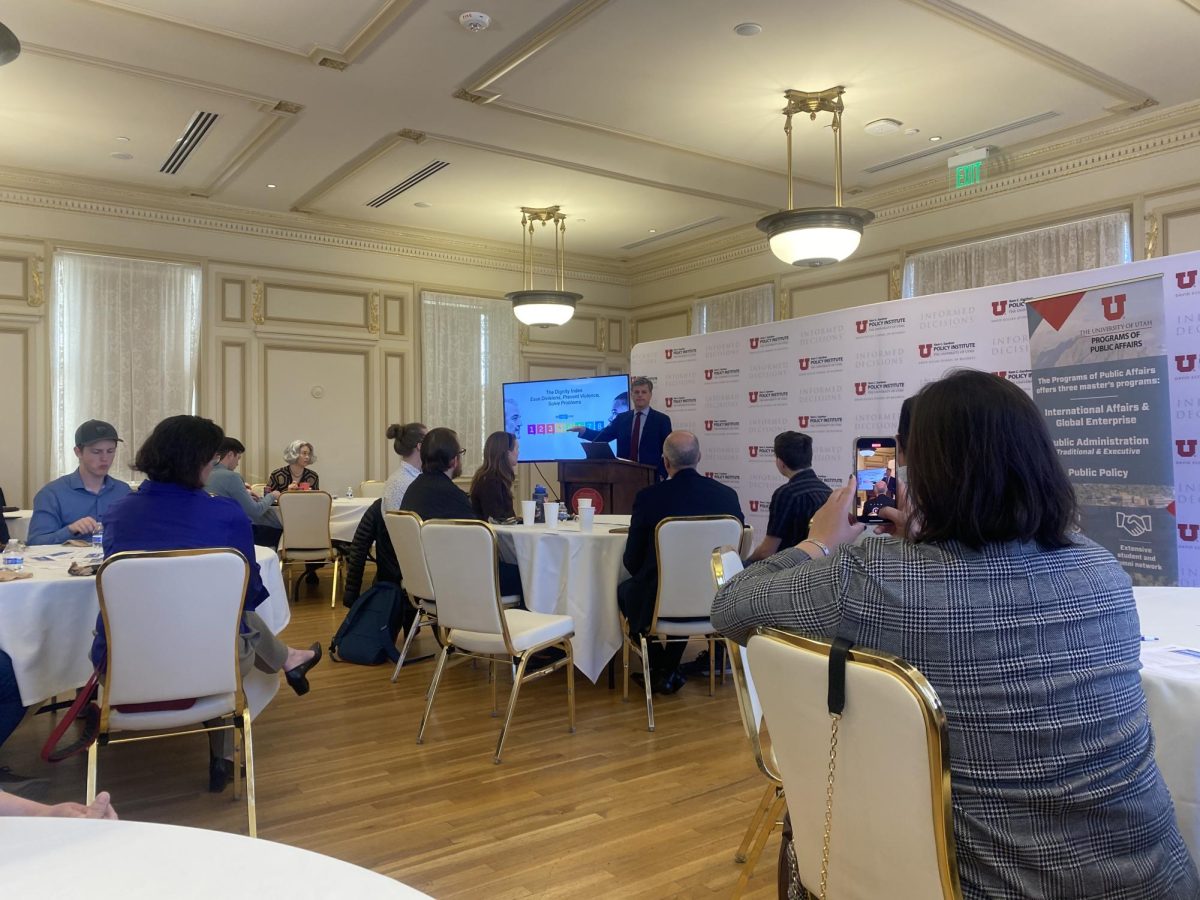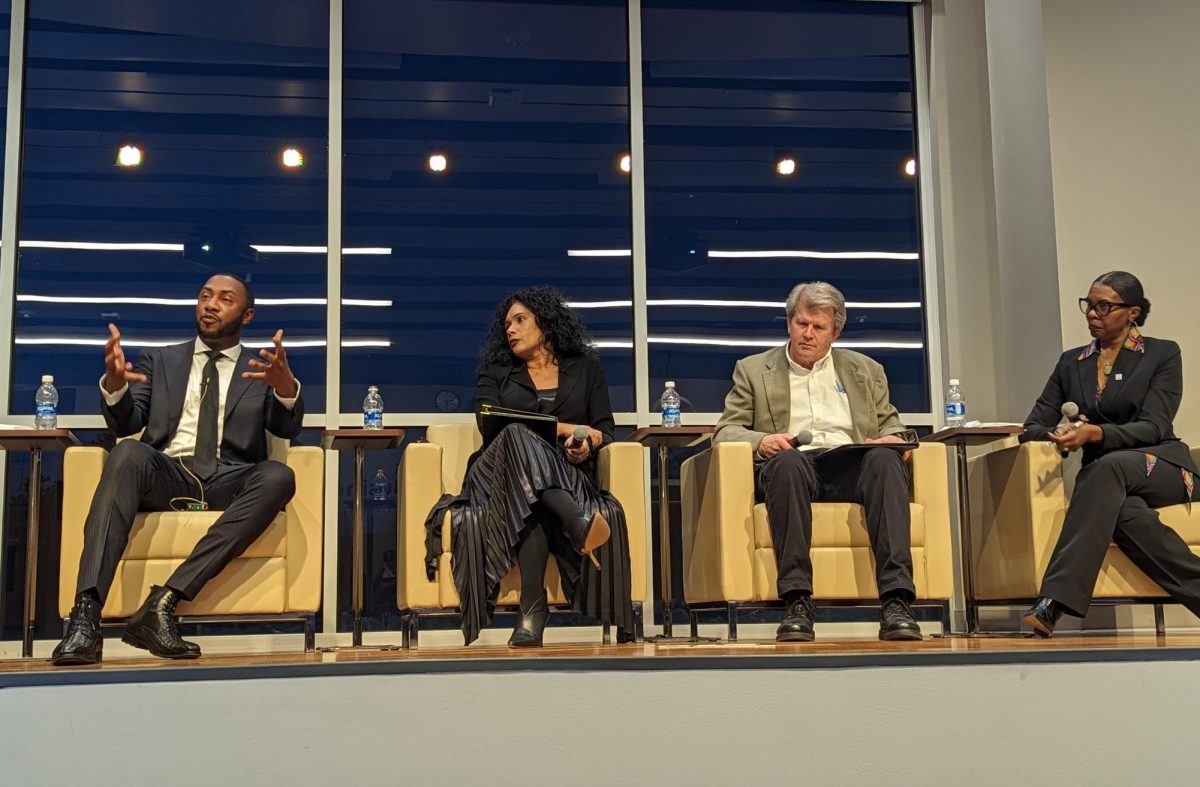
Seven university presidents sent a letter to Utah’s four members of the House of Representatives calling for action on immigration reform.
The letter’s primary author was Weber State president Charles Wight, though others contributed, said U president David Pershing in an email.
“I believe that it is economically smart to continue allowing undocumented students who graduate from a Utah high school and who can meet the rigorous entrance requirements of the University of Utah, to matriculate at in-state tuition rates. The probability of these students becoming productive members of our society is high and they are not blocking out any Utah students, because we admit based on qualifications, not on an enrollment limit,” Pershing said in an email interview.
The letter focuses on both academics and a larger economic and agricultural prerogative. The letter states that immigration reform would enable the state and universities to “retain and capitalize on the talented individuals we are training.”
According to the letter, 29 percent of Utah’s students earning master’s or doctorate degrees in STEM programs (science, technology, engineering and math) are immigrants with “no clear path to stay in America after graduation.” For every 100 foreign-born graduates with a masters or doctorate program in a STEM field, 262 jobs are created for American citizens, the letter said.
During the 2012-2013 school year, 8.5 percent of the U’s student body was non-resident/undocumented, according to the U’s Office of Budget and Institutional Analysis. This number is up 3.4 percent from a decade ago.
The letter also said that Utah, and the United States at large, is not producing the students needed to fill positions in STEM fields. The U.S. Department of Education reports that 16 percent of U.S. high school seniors are “proficient in mathematics” and interested in pursuing a career in related fields. The U.S. is falling behind internationally in sciences and mathematics, according to the report. Among industrialized nations, the U.S. is ranked 25th in mathematics and 17th in science. The report concludes that in these globally competitive circumstances, this is “unacceptable. The report also predicts that between the years 2010-2020, STEM fields such as biomedical engineering will increase in demand by 62 percent.
President Barack Obama, according to the Department of Education site, has called on the nation to develop, recruit and train 100,000 new STEM teachers in this following decade.
Pershing said he recognizes the circumstances involving the shortage of students willing to go into scientific fields and said these problems are not limited to the U.
“This is a national trend. Not enough U.S. born students are interested in STEM programs to meet the demands of American industry,” Pershing said in an email. “In part, this may be due to the fact that science and engineering are often not thought of as glamorous job areas — at least in terms of their portrayal by television.”
Some of these problems begin early in the student’s education, Pershing said, such as when junior high and high school students do not take science courses because they see them as too difficult.
Akshay Moharir, a doctorate student in biology at the U, believes that immigration reform would benefit everyone.
“Having a good reform in immigration would be helpful,” Moharir said. “Not just to the people who are coming in, but to the state itself and the country itself.”
Robert Gabbitas, a junior in biology, said immigration reform has the potential to be helpful.
“It’s not doing anything to discourage illegal immigration, but at the same time it’s not doing anything to encourage those that are already here to make their presence here legal,” Gabbitas said. “I think if it was easier for them to become legal, it would solve a lot of problems.”
Rep. Chris Stewart (R-Utah), whose district includes the U, issued a statement to The Daily Utah Chronicle in response to the letter.
“I agree that immigration reform is an urgent issue that needs to be addressed. There is broad bipartisan support to fix many aspects of our broken system … We also have to remember that it’s not about getting it done quickly, it’s about getting it done right.”
The Utah System of Higher Education predicts that by 2020 one-fifth of Utah’s population will be ethnic minorities. USHE also estimates that 66 percent of Utah jobs will require post-secondary education.
The presidents who signed the letter were president David W. Pershing (U), president Charles A. Wight (Weber State), Scott L. Wyatt (Snow College), Stephen D. Nadauld (Dixie State), Brian Levin-Stankevich (Westminster), Rich Kendell (SUU) and Stan L. Albrecht (Utah State).
Rep. Jim Matheson (D-Utah), Rep. Jason Chafffetz (R-Utah) and Rep. Rob Bishop (R-Utah) did not respond to requests for comment. The letter was only addressed to Utah’s delegation in the House of Representatives.
















El Tigre121 • Oct 8, 2013 at 1:51 pm
Rigorous entry requirements?
El Tigre121 • Oct 8, 2013 at 1:51 pm
Rigorous entry requirements?
Donahoe • Oct 8, 2013 at 10:17 am
I wish I could agree, but there is no shortage in Science and Engineering (S&E). This is a myth that originated in the 1980s. If there were a shortage salaries would be increasing and students would be flocking to S&E. Instead, we have corporate pressure to hold down wages. That said, I agree with the President that mankind’s future depends on advances made by S&E, and we need to address the whole problem in American S&E.
Donahoe • Oct 8, 2013 at 10:17 am
I wish I could agree, but there is no shortage in Science and Engineering (S&E). This is a myth that originated in the 1980s. If there were a shortage salaries would be increasing and students would be flocking to S&E. Instead, we have corporate pressure to hold down wages. That said, I agree with the President that mankind’s future depends on advances made by S&E, and we need to address the whole problem in American S&E.